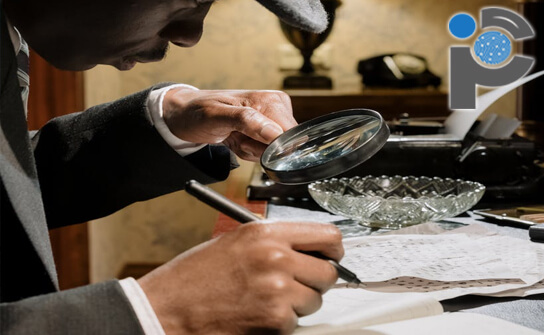How Private Investigators Dig Up Dirt On People
April 3, 2021 - Reading time: 14 minutes
Updated on: October 4, 2025
One of the tasks that private investigators perform on a regular basis is "digging up dirt" on people. The phrase "digging up dirt" can be used to describe any activity which might result in undesirable facts coming to light about a subject. Uncovering negative facts about a person, or their past, can prove to be useful in many different cases.

How to private investigators dig up dirt on people? We've put together this list to offer some insight. For related reading on vetting and records, see How to Check Criminal Records (UK): Essential Information and What do Background Checks in the UK Include?.
1. Personal surveillance
"Personal surveillance" is simply the act of watching a person, following them, and collecting photos/video as evidence of their activities. Surveillance operations can run in duration from 1 day, to several weeks or months in some cases.
The belief with this strategy is that if you watch a person for long enough, that eventually they will do something which could be viewed with a negative light. Perhaps they are seen travelling to a massage parlour, a strip club, or another adult entertainment venue. Maybe they are seen to attend political gatherings which might not be inline with their claimed beliefs.
Gathering evidence of the subject making visits into any such places could seriously harm their reputation and be used to discredit them.
2. Social media research
With social media growing in popularity in recent years, it's difficult to find someone that does not have a digital footprint and a social media presence of some kind. Private investigators tend to maintain multiple different social media profiles, which they can use to befriend the subject… By using sock puppet accounts, detectives can represent themselves as attractive members of the opposite sex or successful business people in a relevant field to the subject's occupation, for example. We tend to find that attractive members of the opposite sex are the best choice when it comes to befriending a person on social media.
![]()
Social media research can prove to be useful in many cases. From the subject sharing controversial opinions or politically related posts, to engaging in arguments or even becoming abusive, there are many different ways that a person can make themselves look bad through social media. Our job can be to trawl through their posts and find material which shines another light on their character.
Social media research can also prove beneficial when it comes to conducting personal surveillance, in terms of learning about the subject's routine and which locations they visit on a regular basis, among many other things.
Related article: What Are Private Investigators Allowed To Do in the UK?
3. Going through their rubbish
While this is not a tactic that tends to be used by our firm in particular, there have been many documented cases of private investigators going through people's garbage in order to find incriminating evidence.

People often discard paperwork and documents which can be used by identity fraudsters; which is why it's a good idea to shred any private documents before disposing of it in your wheelie bin. Despite the risks, many people simply do not take the step to shred their paperwork before disposing of it.
Although a taboo subject for many, private investigators have been known to dive through rubbish in order to gather evidence or dig up dirt on people.
4. Finding disgruntled spouses
If your goal is simply to "dig up dirt" on the subject, then a good method of achieving this can be to find disgruntled spouses, business partners, or even friends. They can then be interviewed and attest to the subject's bad character.
Finding previous spouses can often be achieved through searching records, and past business associates can be located through researching any firms where the subject has previously held directorship or shares. Social media research can also help to provide clues and fill in blanks along the way.
5. Creating a honeytrap
A honeytrap assignment can be a great opportunity to get close to the subject, gain their trust, and potentially uncover incriminating information about them.
So, what is a honeytrap? A honeytrap would involve sending an attractive member of the opposite sex, or the same sex depending on their preferences, to speak with the subject with the goal of starting a romantic exchange.

While honeytraps are typically used during infidelity investigations, they can also be utilized for other purposes, depending on the needs of our client.
Once the agent has gained trust from the subject, they might be more likely to share information which they otherwise would not divulge to a stranger. These exchanges can then be recorded and used to our benefit.
While honeytrap assignments are traditionally initiated whilst the subject is in a public place (such as a bar, club, or restaurant, for example), more honeytrap cases now involve initiating contact through social media or dating sites.
6. Check their records
Checking people's records can prove to be an excellent method of digging up dirt and discrediting them. Whilst a parking fine or speeding ticket might not prove too much a cause for concern; if the subject is (or has previously) attended crown court to face allegations of violent or sexual offenses, for example, this could prove to be extremely damaging to their character.
Private investigators are experts at accessing such data and finding evidence of a person's court appearances, or judgements which have been made against them. These checks are often more thorough and in-depth than standard DBS checks which are often used by employers. If you’re exploring the records angle, you may find these helpful: How to Check Criminal Records (UK): Essential Information, Can Private Investigators Check Criminal Records in the UK?, and What do Background Checks in the UK Include?.
7. OSINT (Open Source Intelligence) investigations
OSINT refers to gathering information from open sources: public websites, forums, social platforms, search engines, company filings, and, where legally permissible, references to leaked datasets. In some cases, when a website has been hacked, portions of its user database may circulate online. That material can sometimes reveal details like email addresses, phone numbers, usernames, or evidence of accounts on sensitive platforms (for example extramarital dating sites or adult services marketplaces). We are not providing legal advice here: laws are complex and context dependent, but in some situations leaked data may subsequently be accessible in the public domain. Ethical investigators assess the provenance and legality of sources before use.
As a basic self-check, you can use HaveIBeenPwned to see if an email address has been linked to known breaches. Professional OSINT goes much further, pivoting across aliases, usernames, breached keywords, and historic snapshots, to map a subject’s digital footprint. For broader vetting alongside OSINT, see our guides on what UK background checks include and whether PIs can check criminal records.
Why do private investigators dig up dirt on people?
At a practical level, investigators take these instructions because clients pay for fact-finding. The motivations vary widely and can include discrediting political or business rivals, probing reputation risks before a deal, gathering leverage in family disputes, and safeguarding loved ones by running background checks on a new partner. Any ethical or legal investigator weighs the merits and purpose of the request, as well as the lawful basis for processing data, before proceeding.
In the UK and other jurisdictions, court record discovery (where accessible) can reveal whether an individual has appeared, or is due to appear, in Magistrates’ or Crown Court. Not all matters are covered by press or online reports, so skilled records work can surface information that typical searches miss. If you’re exploring this path, our primer on checking criminal records in the UK provides useful context.
Is a private investigator digging up dirt on you?
If you believe that a private investigator might be trying to dig up dirt on you, then we can help by providing counter surveillance. Counter surveillance can allow us to confirm that a private investigator is following our client. We also provide a bug sweeping service, which can be used to detect unwanted bugging devices such as hidden cameras, microphones, or GPS tracking devices.
As private investigators ourselves, we are fully aware of the different tactics that a detective agency might use to gather information on a subject. And if you suspect that you're being followed, or your property has been bugged, then we can help – our detectives cover all areas of the United Kingdom. Please feel free to browse our website for more information about our services or get in touch with us for a free quote.
Related articles
- 6 Signs That You Are Being Stalked
- GPS tracker FAQ: Is it legal to fit GPS trackers in the UK?
- How Long Do Private Investigators Follow People?
- Why would a private investigator want to talk to you?
- How to Check Criminal Records (UK): Essential Information
- Can Private Investigators Check Criminal Records in the UK?
- What do Background Checks in the UK Include?
Need a Private Investigator in the UK?

We are a UK-based private investigator agency handling surveillance, background checks, OSINT, and counter-surveillance nationwide. All enquiries are treated in confidence.
You are reading the PrivateInvestigators-UK blog — home to the UK's leading detective agency. Learn more about us by visiting our homepage PrivateInvestigators-UK.com.